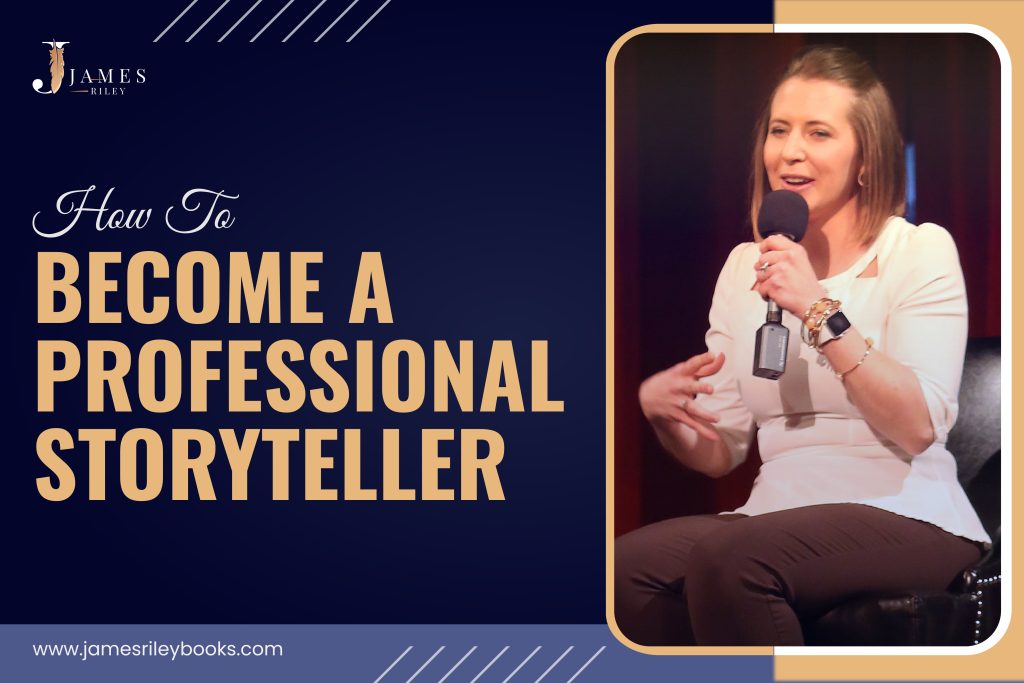
The art of storytelling is one of the ancient art forms as old as humanity itself. Stories have stood the test of time. It’s both an art and science, a way of creating a deep connection with one person or a million people. Regardless of a bedtime story, literary history, sharing experiences, beliefs, and values, it is a narrative to entertain, educate, and inspire your audience. It is an art of inspiration and connectivity that requires you to create a deeper emotional and mental connection with either one person or the entire audience. Your storytelling makes people feel heard, validated, and listened to keenly.
Storytelling doesn’t require the spoken medium only; the experiences can be shared through distinct mediums such as writing, digital platforms, videography, etc. Technically, there is no specific education required to become a professional storyteller. Many storytellers come from diverse educational backgrounds, which enriches storytelling. Initially, you can hone your skills at home. Later, you can join any helpful organization, workshop, or conference. When you are planning to become a professional storyteller, there are many things you need to keep in mind once your audience is absorbed into the story and transported to the world of strong imagination.
“It is no longer merely a discipline; it is the context of life and work in which we all exist. It ranges from YouTube video novels to Instagram Stories, from brand narratives to brand journalism: we now live in an incessant flow of content and information to work, play, train and distract us.”
- Fontana
How to become a professional storyteller?
By following these effective ways, you can become a professional storyteller.
#1 Make it Personal

Via Vecteezy.com
Your storytelling journey begins by infusing your experiences, emotions, and perspective into your tales. Your own stories, joyful or challenging, can evoke emotions in your audience. Authenticity is the key to connecting with your audience on a profound level. Share your vulnerabilities, triumphs, and lessons learned through the power of storytelling.
#2 Write Out the Story You Plan to Tell

Via Leverageedu.com
Start with brainstorming your ideas into a well-structured narrative. Outline the plot, characters, and themes to create a coherent and fetching story. The roadmap will guide you throughout the storytelling process, ensuring that your story keeps your audience connected.
#3 Know Your Audience

Via Vecteezy.com
You need to understand your audience’s preferences, interests, and expectations from your end. Make your storytelling style one that can meet with them effectively. Question yourself, “What can relate to them? What emotions do they connect with?” When does your audience feel that you’re speaking to them?
#4 Chase Your Pain Points

Via Chase.com
Effective storytelling involves building tension, suspense, and emotional engagement. Balancing the informational flow to keep your audience connected would be best. The moments of emotional engagement build tension and suspense. It draws their attention towards your story.
#5 Work in Surprises

Via Vecteezy.com
Suspense is the spicy element in storytelling. To become a professional, you should keep your audience on their toes by incorporating some unexpected twists and turns in your stories. It makes the story more impactful and enhances the overall reader’s experience.
#6 Expel Your Comfort Zone

Via Vecteezy.com
Growth always comes from stepping out of your comfort zone. It would help if you challenge yourself by experimenting with different storytelling formats, genres, and platforms. Each new experience will expand your skill set and broaden your creativity.
What are the important qualities of professional storytelling?
#7 Creativity and Imagination

VIa 123rf.com
Storytellers must possess a vivid imagination to create a unique and attractive narrative.
#8 Written and Verbal Communication

Via ftcdn.net
Communication is the core element in storytelling, whether verbal or written. It helps you connect with your audience.
#9 Research and Fact-Checking Abilities

Via Nsta.org
Consistency and accuracy should be maintained well in your stories, especially when dealing with real-world elements: it’s essential.
#10 Adaptability to Different Storytelling Formats

Via Freepik.com
Being a storyteller, you should have the versatility to adapt your storytelling to different styles, vocals, mediums, and platforms.
#11 Persistence and Dedication
Via Istockphoto.com
You can build your storytelling career, which requires perseverance and dedication to honing your creation occasionally.
What are the specializations in storytelling?
Storytelling doesn’t require any graduation or degree. However, if you want to become a professional storyteller, you can specialize in various fields, including:
Literary Storytelling:

Freepik.com
The literary specialization involves writing novels, stories, poetry, and creative non-fiction. It allows storytellers to express themselves through prose and narrative depth.
Oral Storytelling:

Via Alamy.com
You can perform at storytelling events, festivals, and schools, where the spoken word is the medium of choice. It helps you be efficient at oral storytelling. Oral storytellers have the unique ability to connect with their listeners in real time.
Digital Storytelling:

Via Elearningindustry.com
Besides those mentioned above, you can create blogs, podcasts, and social media platforms, using digital media to reach your global audience. It enhances your narrative in a digital storytelling format.
Scriptwriting:

Via Freepik.com
You can specialize in scriptwriting and create scripts for theatres, television, or films where storytelling is translated into visual and auditory experiences. They must master the art of storytelling within the constraints of these mediums.
Corporate Storytelling:

Via Freepik.com
It focuses on the business world to help develop brand narratives and marketing materials to connect with your consumers personally. It mainly conveys the brand’s values, mission, and identity.
Pros and Cons of a Career in Storytelling:
Pros:
- Storytellers have the creative freedom to express their eccentric perspectives, ideas, and emotions through their creations.
- Storytelling exceeds boundaries, allowing storytellers to connect with people from different backgrounds, cultures, and walks of life.
- Storytelling offers diverse career options, from traditional writing to content creation for various media.
- Powerful stories can leave an ink on an individual’s mind and the rest of society, influencing hearts, minds, and even social change.
Cons:
- The creative industry can be unpredictable, leading to fluctuating income and job instability, especially for freelancers.
- Many individuals aspire to become storytellers, leading to intense competition in the field. Standing out requires exceptional talent and persistence.
- Storytellers must continuously market themselves to build and maintain an audience, which can be time-consuming and challenging.
- Managing multiple projects and meeting deadlines can be demanding and stressful, especially when simultaneously working on various storytelling endeavors.
Conclusion
A career in storytelling is both rewarding and demanding. While it offers the chance to express creativity, connect with diverse audiences, and leave a permanent impression, storytellers must navigate challenges such as income variability, competition, self-promotion, and time management. Ultimately, those passionate and dedicated to creating often find it a fulfilling and enriching career path. Hence, if you are looking for a guide on how to become a professional storyteller, this blog is surely for you.
Here’s a quick tip. Never be afraid to take risks and make tough choices. This way, you will explore the uncharted territory in storytelling.
